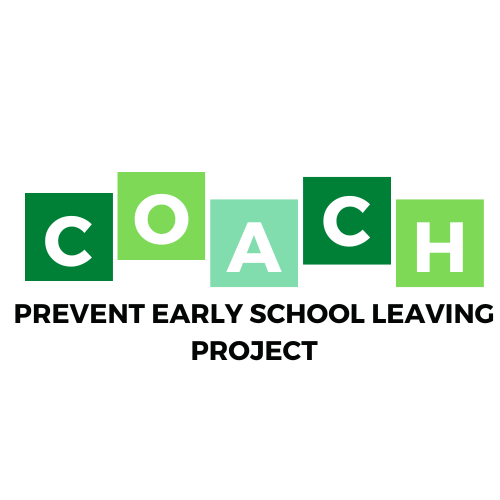
What is the COACH project about?
Our aim is to develop a “school coaching approach” to help prevent Early School Leaving (ESL).
We will co-design tools for teachers, their schools, and the development of students’ internal resources, strategies to maximise their ability to acquire knowledge and skills, and develop methods to improve the effectiveness of learning activities.
People who do not finish secondary school have fewer opportunities in the labour market, often condemned to badly-paid semi-skilled jobs, with little prospect for building a career. There are several causes for ESL, to do with individual circumstances, family background, school support, and social context. We will focus on the school context as one significant factor.
Our school coaching approach will help create a good atmosphere in schools, and teachers will find it easier to engage and motivate students. Through coaching skills teachers will gain new perspectives on the learning process and how to explore innovative approaches. This will help the development of students’ personal potential, opening new opportunities for growth and self-realisation. They will be able to clarify and self-set their goals, and learn strategies for independent implementation, which will lead to high results in learning.
Our free resources will help:
- Activate the creative potential of teachers and improve the academic programme.
- Stimulate the desire of teachers to implement new methods and techniques in the workplace.
- Raise teachers’ awareness and knowledge of these topics, and provide a clear understanding of how to deal with problems and difficulties faced by students, in order to reduce the risk of ESL.
- Provide tools and models for developing students’ abilities, in particular: self-confidence, self-recognition, purposefulness, communication and cognitive skills.
- Improve cooperation between the school, student, family and the municipality by involving them in school education.

